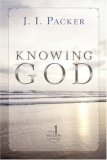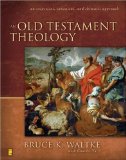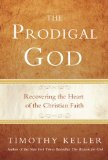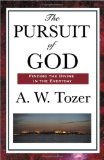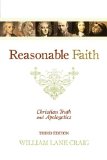Thanks to Zondervan for a review copy of this book and an opportunity to participate in the Blog Tour for Darrel Bock’s A Theology of Luke and Acts.
A few weeks back Zondervan went on the look-out for bloggers who were interested in joining up on their Blog Tour for this fine book, A Theology of Luke and Acts. Who wouldn’t want to read something by Darrel Bock, right? It makes sense, too, for Bock to be tabbed to write this particular volume, given that he has now completed commentaries on both Luke’s Gospel and Acts.
 Because of the size of the book (roughly 450 pages of text) and the short amount of time to read the book before the Blog Tour, reviewers were asked to pick one chapter and review it. Fair enough. I opted to read chapter 17, ‘Women, the Poor and the Social Dimensions in Luke-Acts.’
Because of the size of the book (roughly 450 pages of text) and the short amount of time to read the book before the Blog Tour, reviewers were asked to pick one chapter and review it. Fair enough. I opted to read chapter 17, ‘Women, the Poor and the Social Dimensions in Luke-Acts.’
Bock notes the cultural prejudice against women during Jesus’ time, specifically how they were not seen as reliable witnesses by society. Yet, they serve that function in Luke’s gospel time and time again, from Anna the prophetess to those who first receive the news of Jesus’ resurrection. They are some of his most loyal followers, often more faithful than the men who walked with him.
Interestingly, the women of Luke’s gospel don’t fit a single mold. From rich (Joanna) to poor (the woman who gave her two mites), from righteous (Elizabeth and Mary, the mother of Jesus) to those with unrighteous pasts (the women who anoints Jesus’ feet)- Luke seems to take care to include the whole gamut of possibilities.
Bock also correctly notes that individual women are not the main focus in Acts, since the focus of Acts tends more towards communities (through the ministry of individuals, of course). Key here is the inclusion of women in receiving the Spirit in Acts 2, responding positively to Paul’s teaching in Thessalonica, etc. Priscilla, wife of Aquila, is somewhat different, however, in that she’s not a recipient, but a teacher.
As for the poor, it has been long said that Luke has great concern for them. Bock notes, correctly, that we can’t spiritualize these teachings, but must accept them for what they are: declarations that the poor will be blessed. He also notes that this concept is “rooted in OT texts… the pious poor of the Hebrew Scriptures who are exploited” (p355).
Bock rejects the over-politicizing nature of liberation theology, remarking “What we have in these passages is something that falls between the full political agenda of a liberation perspective and the ignoring of the poor that often is the approach of the alternatives to liberation” (p355). I think he is basically correct here. While I’m not convinced it’s entirely possible to separate Jesus’ teachings from politics- especially not in Jesus’ day, when ‘separation of church and state would have been a completely foreign view- it’s hard to imagine that Jesus would call for the overthrow of a government in order to liberate the poor and oppressed (not to mention probably replace it with a new government that will form a new category of oppressed people).
As solid as this chapter is, I felt like he came up one step short in explaining the importance for this aspect of Jesus’ ministry, especially how it relates to the Kingdom of God.
In fact, the ‘Kingdom’ as a category seems to have received the short shrift from Bock in this volume. According to the subject index, it’s only discussed on about 10 of the 450 pages. Now, I realize the Kingdom of God is not peculiar to Luke’s writings, so perhaps Bock felt the need to focus elsewhere. Then again, healings, discipleship, Israel, the Hebrew Scriptures- these are crucial to all of the gospels yet receive their own chapters in this book.
The point is that the ‘Kingdom’ is central to Jesus’ preaching, and we know this because it’s central to the Synoptic Gospels (elsewhere Bock calls it a ‘key theme’ [p141]). Jesus came proclaiming the Kingdom with his words, and demonstrating its arrival with his deeds. So what does Luke’s focus on women and the poor tell us about the Kingdom that Jesus proclaimed?
This is where I was disappointed in Bock’s chapter. It’s not that he says anything wrong; in fact, there’s little to argue with in this chapter. It’s that he doesn’t say enough. He says basically what anyone with a little bit of time studying Luke-Acts can come up with. What he doesn’t do is connect the dots and tell us just why it’s so important Jesus’ ministry included reaching out to women and the poor, or why Luke in particular highlights this.
Keep in mind that I’m focusing on one chapter out of 23. I highly recommend you go and read other reviews included in the Blog Tour to get a fuller picture of the book’s quality. From what I read (which was a little more than just this chapter), it seems like Bock makes solid observations, but may come up a tad short in pulling it all together and demonstrating the coherence of Luke’s theology.


